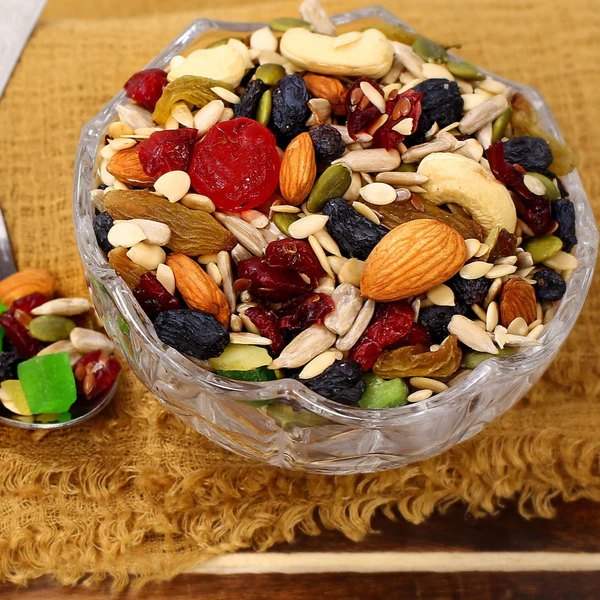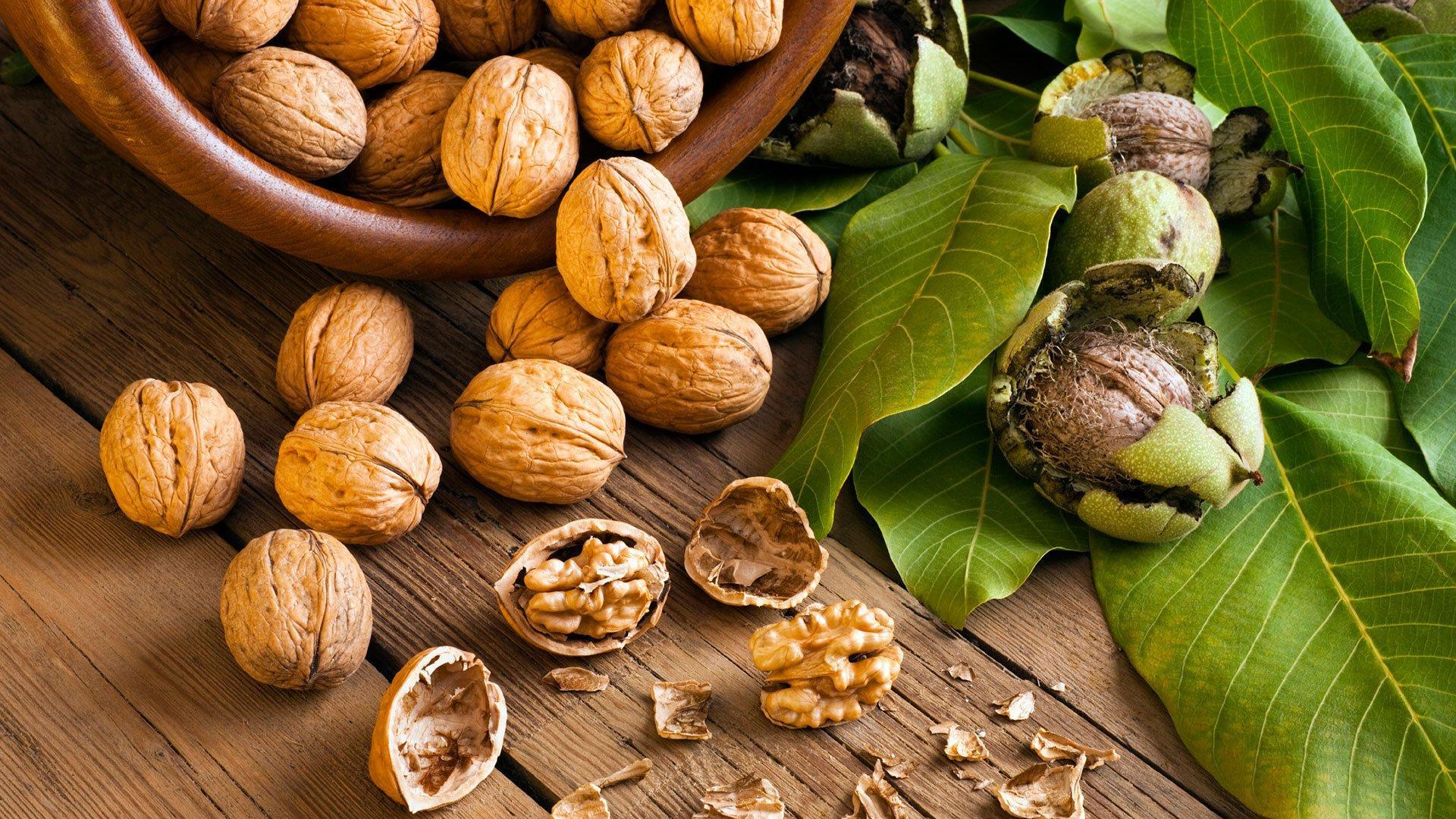In India walnuts are produced mostly in the valley of kashmir. kashmir supplies around 70 percent of India’s walnut

Kashmiri kagzi walnuts
Grown in the unique climatic condition kashmiri walnuts are considered as world most tasty and crunchy walnuts with highest oil concentration around 55 percent.
Particular Rigions of kashmir where walnuts are grown:
- Anatnag
- Budgam
- Kupwara
- Pulwama
- Shopian
- Ganderbal

WALNUTS
A Legacy Rooted in Nature
Kashmir’s temperate climate, rich soil, and abundant rainfall create ideal conditions for walnut cultivation. The region primarily grows three types of walnuts: paper-shell (thin shell), semi-paper, and hard-shell varieties. Among these, the paper-shell variety is the most prized for its ease of cracking and higher kernel yield.
Unlike many commercial walnut-producing regions where trees are grafted, most walnut trees in Kashmir are grown from seed — resulting in genetic diversity and richer, more complex flavors.
Nutritional Powerhouse
Kashmiri walnuts are packed with health benefits:
- Rich in Omega-3 fatty acids: Great for heart health and brain function.
- High in antioxidants: Help fight inflammation and slow aging.
- Good source of protein and fiber: A smart choice for snacking or adding to meals.
- Contains vitamins and minerals: Including Vitamin E, B6, folate, and magnesium.
Whether you eat them raw, roasted, or soaked overnight, walnuts are a simple way to boost your overall well-being.
Harvesting the Old-Fashioned Way
What sets Kashmiri walnuts apart is their traditional method of harvesting. Every autumn, farmers use long sticks to gently shake the walnut trees, letting the nuts fall to the ground naturally. After collection, they are sun-dried and shelled — often by hand — to preserve their quality. This artisanal approach ensures minimal use of chemicals and maintains the integrity of the nut.
Culinary Versatility
In Kashmiri cuisine, walnuts are more than just a snack. They are ground into gravies, stuffed into breads like walnut kulchas, added to chutneys, and even used in desserts. They lend a delightful crunch and earthy flavor that balances the aromatic spices typical of the region’s food.
Try adding crushed Kashmiri walnuts to yogurt with honey, mixing them into your morning oats, or using them as a base for pesto. Their subtle sweetness and rich texture make them incredibly versatile.
Sustainability and Livelihood
Walnut farming in Kashmir supports thousands of families. For many small-scale farmers, it’s a primary source of income. As awareness grows around organic and naturally grown produce, Kashmiri walnuts have found a strong demand in global markets, especially for their purity and flavor.
However, the industry faces challenges such as lack of modern processing infrastructure, inconsistent pricing, and logistical hurdles due to the region’s geography. Supporting local cooperatives and fair-trade initiatives can help ensure a more sustainable future for these farmers.
The Takeaway
Kashmiri walnuts are more than just a health food — they are a symbol of the region’s heritage, resilience, and connection to nature. When you crack open a walnut from Kashmir, you’re not just getting a nutritious bite, but also a taste of a centuries-old tradition rooted in the heart of the Himalayas.
So the next time you’re looking for a snack that’s as nourishing as it is authentic, reach for a handful of Kashmiri walnuts — and savor the goodness of the valley.
🥜 Top Benefits of Eating Walnuts Daily
1. Supports Heart Health ❤️
Walnuts are rich in omega-3 fatty acids, particularly alpha-linolenic acid (ALA), which helps reduce bad cholesterol (LDL), lower blood pressure, and improve overall heart function. Regular walnut intake is associated with a lower risk of cardiovascular diseases.
2. Boosts Brain Function 🧠
Often called “brain food”, walnuts contain polyunsaturated fats, antioxidants, and vitamin E — all of which support memory, focus, and cognitive health. They may also help protect against age-related brain decline.
3. Improves Gut Health 🌿
Eating walnuts daily helps increase beneficial gut bacteria, especially butyrate-producing bacteria, which are crucial for digestive health and reducing inflammation.
4. Fights Inflammation 🔥
Walnuts are loaded with antioxidants, including polyphenols, which combat oxidative stress and inflammation — two key drivers of chronic diseases like diabetes, arthritis, and cancer.
5. Supports Weight Management ⚖️
Despite being calorie-dense, walnuts are satiating. They help control appetite, curb unhealthy cravings, and support metabolic health. The healthy fats and fiber promote a feeling of fullness.
6. Enhances Skin & Hair Health ✨
The Vitamin E and healthy fats in walnuts nourish the skin and scalp, keeping them hydrated and reducing signs of aging. Biotin in walnuts may also support stronger hair.
7. Regulates Blood Sugar Levels 🩸
Walnuts have a low glycemic index and are high in fiber and healthy fats, which help regulate blood sugar levels — making them ideal for people with or at risk of type 2 diabetes.
8. Rich in Essential Nutrients 🧾
Walnuts are a good source of:
- Magnesium (supports muscle and nerve function)
- Copper (supports immune and cardiovascular health)
- Folate & B6 (important for brain and mood)
- Plant-based protein (great for vegetarians and vegans)
📝 How Much to Eat?
A healthy daily serving is 1 ounce (about 7 whole walnuts or 14 halves). That’s around 180 calories — perfect as a snack, in smoothies, or sprinkled on salads.

Dryfruits
Cyprus
